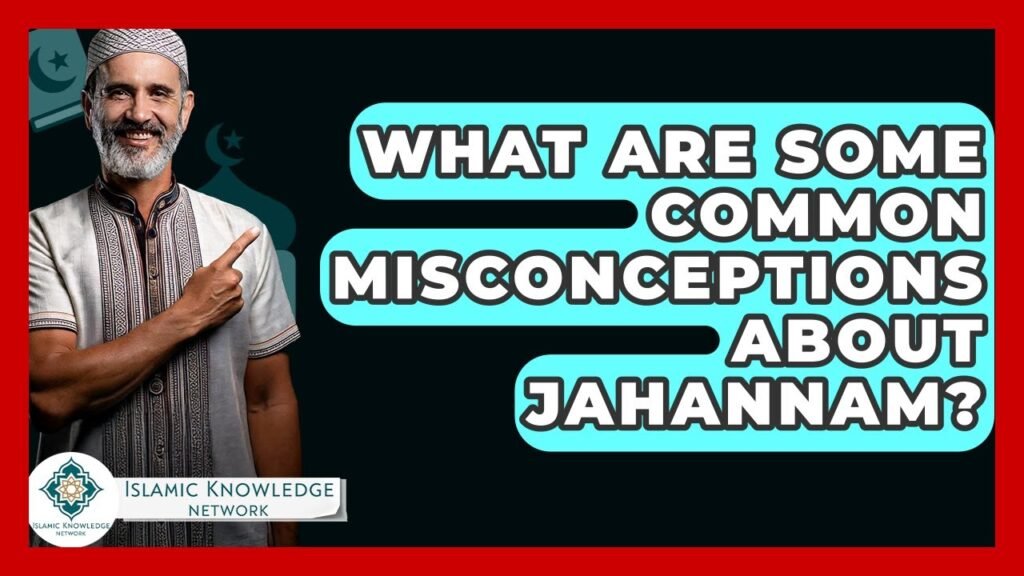You are here to read: Common Misconceptions About Jahannam: What Should You Know? – A Thoughtfully Written Guide Offering Spiritual Wisdom and Travel Advice for Every Pilgrim who is going on holy journey of Hajj or Umrah.
What Are Some Common Misconceptions About Jahannam? – Islamic Knowledge Network
In the rich tapestry of Islamic teachings, Jahannam, or Hell, is often misunderstood, spawning various misconceptions that can mislead believers. Many see it solely as a place of punishment, but this perspective often overlooks the deeper theological implications tied to divine justice and mercy. Understanding these nuances is essential for a more informed and holistic view of Islamic beliefs, especially when seeking to strengthen one’s faith and knowledge.
At Airlink Hajj and Umrah, we strive to provide our readers with accurate information and insightful perspectives on various Islamic topics, including complex concepts like Jahannam. Our commitment to spreading authentic knowledge extends to the sacred journeys of Hajj and Umrah, as reflected in our continuously updated blog. As pilgrims prepare for these spiritual milestones, understanding key religious tenets enhances their journey, allowing for a more profound connection with faith. Join us as we unravel the common misconceptions surrounding Jahannam, shedding light on the truths rooted in Islamic teachings and emphasizing the importance of well-informed beliefs in the lives of Muslims today.
Common Misconceptions About Jahannam: What Should You Know?
When discussing Jahannam, or Hell, in Islamic theology, several misconceptions often arise. One prevalent myth is that Jahannam is solely a place of eternal torment with no hope for redemption. In reality, many Islamic scholars emphasize that Allah’s mercy is vast, and the purpose of Jahannam is also to serve as a form of divine justice for those who knowingly turn away from His guidance.
Another common misconception is that all sinful individuals will immediately be cast into Jahannam. Many teachings suggest that some individuals may face trials or purification before entering eternal resting places. The Quran highlights that depending on one’s actions and repentance, Allah may forgive or punish, reflecting the balance between justice and mercy in Islam.
Lastly, many believe that Jahannam is a physical location, which is a limited view. Symbolically, Jahannam represents the spiritual consequences of one’s actions and choices in life. Understanding these nuances can help deepen one’s faith and awareness of divine justice.
For more insights into Islamic teachings and to stay updated on Hajj and Umrah preparations, explore our blog at airlinkhajjandumrah.com. We’re committed to providing you with the latest updates and information to enhance your spiritual journey.
You're at the middle of this awesome post at AirlinkHajjandUmrah.com through: Common Misconceptions About Jahannam: What Should You Know?. Keep reading, it gets better!
FAQ on “Common Misconceptions About Jahannam: What Should You Know?”
-
What is Jahannam, and how is it commonly misunderstood?
Jahannam is often viewed solely as a place of punishment, but it also embodies concepts of justice and mercy within Islamic teachings.
-
Is Jahannam only for non-believers?
Many believe Jahannam is exclusively for non-believers, but Islamic teachings suggest that even those who have faith can enter Jahannam for their sins. -
Are the descriptions of Jahannam meant to be taken literally?
Some interpretations suggest that the vivid descriptions of suffering in Jahannam may be metaphorical, aimed at conveying moral lessons rather than precise realities. -
Can anyone escape Jahannam?
There’s a misconception that a complete lack of escape is absolute; however, beliefs vary on the possibility of redemption or eventual release for certain souls. - Does the concept of Jahannam conflict with the idea of a merciful God?
While some view Jahannam as conflicting with divine mercy, many argue that the existence of Jahannam serves to highlight God’s justice and the importance of individual accountability.
That wraps up Common Misconceptions About Jahannam: What Should You Know?. Thanks for sticking with us till here! Share this: Common Misconceptions About Jahannam: What Should You Know? with your friends.
Check our homepage at Air Link Hajj & Umrah for more awesome updates.
Some interesting posts are: 1: Umrah Mubarak, 2: When is Umrah closed 2026?, 3: When does Umrah start after Hajj 2026?
Mushu, an experienced Saudi Arabia traveler and writer, shares insightful tips and spiritual reflections to enhance Hajj and Umrah journeys for fellow pilgrims. He has been to Makkah and Madina from 2016 to 2023 many times and his posts will reflect this.







